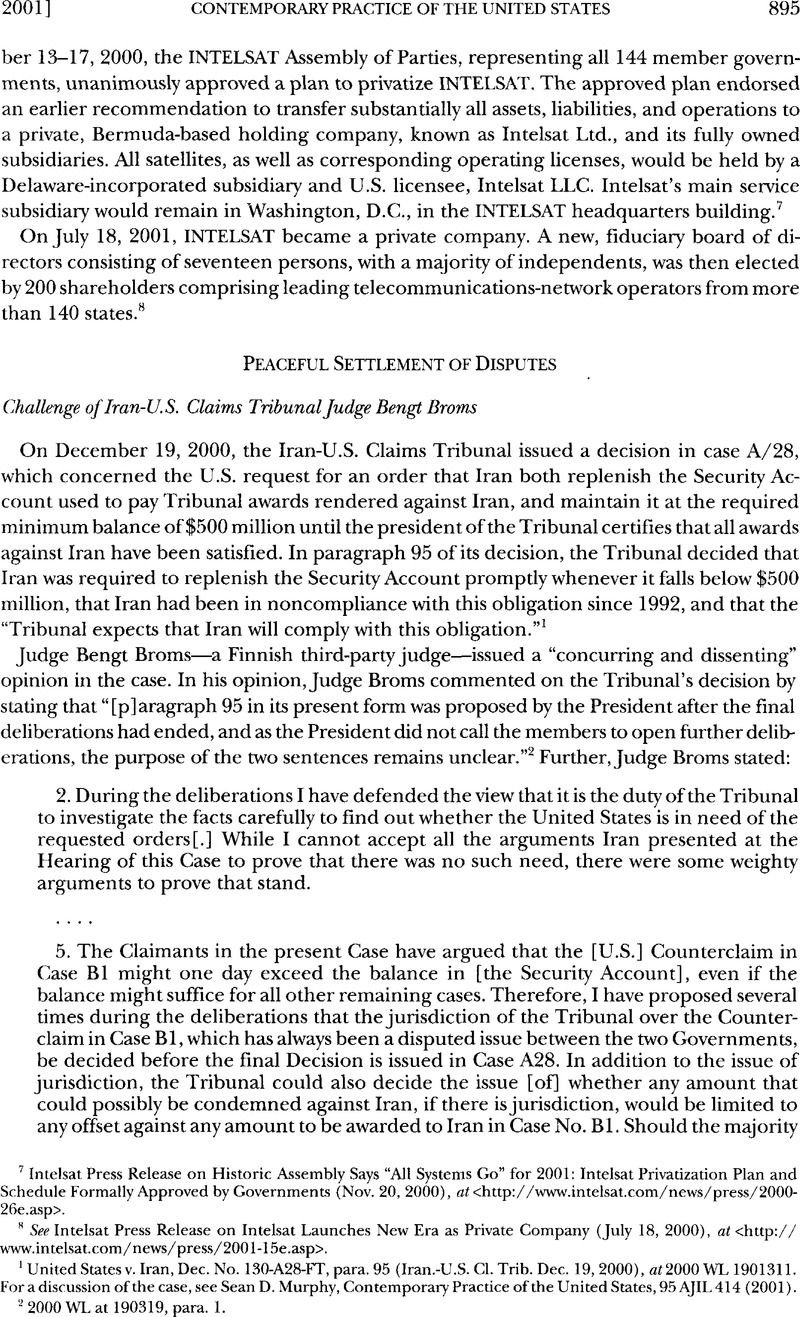No CrossRef data available.
Article contents
Challenge of Iran-U.S. Claims Tribunal Judge Bengt Broms
Published online by Cambridge University Press: 10 March 2017
Abstract

- Type
- Contemporary Practice of the United States Relating to International Law
- Information
- Copyright
- Copyright © American Society of International Law 2001
References
1 United States v. Iran, Dec. No. 130-A28-FT, para. 95 (Iran.-U.S. CI. Trib. Dec. 19, 2000), at 2000 WL 1901311. For a discussion of the case, see Sean, D. Murphy, Contemporary Practice of the United States, 95 AJIL 414 (2001)Google Scholar.
2 2000 WL at 190319, para. 1.
3 Id., paras. 2, 5.
4 See Sean, D. Murphy, Contemporary Practice of the United States, 94 AJIL 378 (2000)Google Scholar.
5 The Rules of Procedure of the Iran-United States Claims Tribunal provide:
The arbitral tribunal shall deliberate in private. Its deliberations shall be and remain secret. The Secretary-General may be present. No other person may be admitted except by special decision of the arbitral tribunal. Any question which is to be voted upon shall be formulated in precise terms in English and Farsi and the text shall, if a member so requests, be distributed before the vote is taken. The minutes of the private sittings of the arbitral tribunal shall be secret.
Iran-U.S. Claims Tribunal, Rules of Procedure, Art. 31, note 2 (provisionally adopted May 3, 1983, as amended May 27, 1997), reprinted in David, D. Caron & John, R. Crook, The Iran-United States Claims Tribunal and the Process of International Claims Resolution 433, 462 (2000)Google Scholar.
6 Decision of the Appointing Authority to the Iran-U.S. Claims Tribunal at 5–6 (May 7, 2001) (on file at GWU).
7 Mat 8, 10–11.


